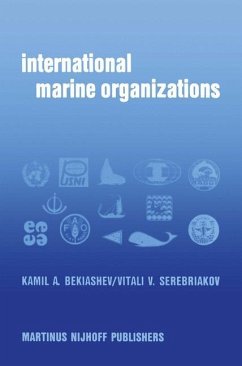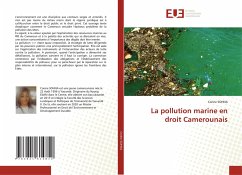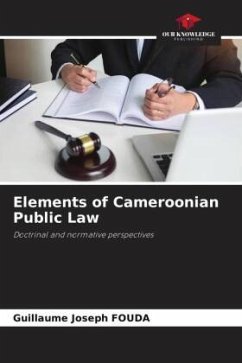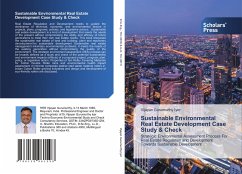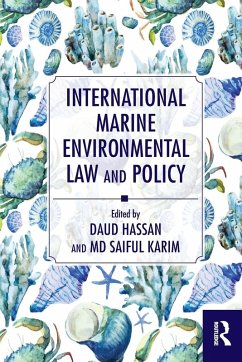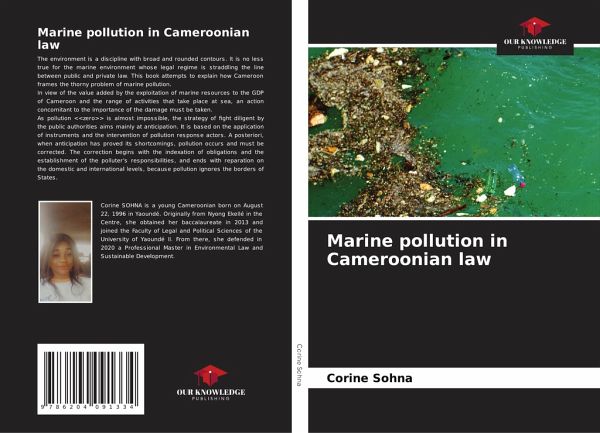
Marine pollution in Cameroonian law
Versandkostenfrei!
Versandfertig in 6-10 Tagen
41,99 €
inkl. MwSt.

PAYBACK Punkte
21 °P sammeln!
The environment is a discipline with broad and rounded contours. It is no less true for the marine environment whose legal regime is straddling the line between public and private law. This book attempts to explain how Cameroon frames the thorny problem of marine pollution. In view of the value added by the exploitation of marine resources to the GDP of Cameroon and the range of activities that take place at sea, an action concomitant to the importance of the damage must be taken. As pollution is almost impossible, the strategy of fight diligent by the public authorities aims mainly at antici...
The environment is a discipline with broad and rounded contours. It is no less true for the marine environment whose legal regime is straddling the line between public and private law. This book attempts to explain how Cameroon frames the thorny problem of marine pollution. In view of the value added by the exploitation of marine resources to the GDP of Cameroon and the range of activities that take place at sea, an action concomitant to the importance of the damage must be taken. As pollution <> is almost impossible, the strategy of fight diligent by the public authorities aims mainly at anticipation. It is based on the application of instruments and the intervention of pollution response actors. A posteriori, when anticipation has proved its shortcomings, pollution occurs and must be corrected. The correction begins with the indexation of obligations and the establishment of the polluter's responsibilities, and ends with reparation on the domestic and international levels, because pollution ignores the borders of States.



